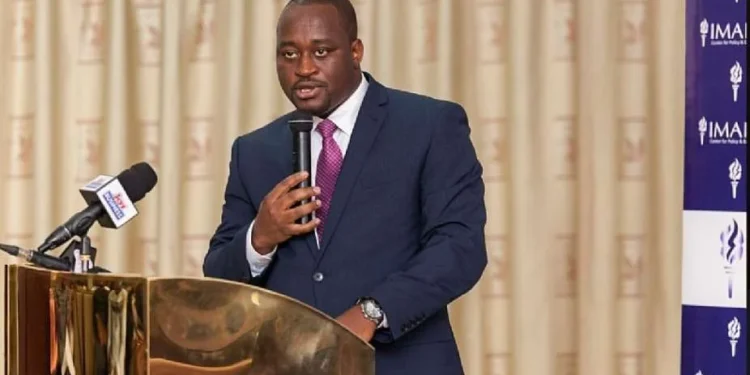Hepatitis, a viral infection that causes inflammation of the liver, is a significant public health concern in Ghana.
The World Health Organization (WHO) estimates that approximately 4.6% of the Ghanaian population is living with chronic hepatitis B, while hepatitis C affects about 1.5% of the population.
Despite the alarming statistics, awareness and understanding of hepatitis remain low among the general public. In this context, the media plays a crucial role in disseminating information, shaping public perceptions, and mobilizing communities towards preventive measures.
Ghanaian musician and health advocate, Okyeame Kwame, has called for sustained media engagement and stronger partnerships to combat Hepatitis in Ghana.
He emphasised the need for a consistent, nationwide awareness campaign, noting that the global target is to eliminate Hepatitis as a public health threat by 2030.
According to him, addressing the Hepatitis burden requires more than occasional campaigns tied to annual events, which he described as a “fire service” approach.
“To help the WHO communicate Hepatitis conversation properly, we need the media, and we do not have to use this same ‘fire service’ strategy where once the happens in July, we all come and quench it and go back to our businesses.
“So we need a year-long roll-out plan. The Hepatitis policy that we have in Ghana also about six years ago, I think it is getting old. We need to revamp it. We need a new policy document. We need the government to show a bit more interest. But I think that currently what we need is to forge a bit more media partners.”
Okyeame Kwame
Okyeame Kwame has been a dedicated advocate for Hepatitis awareness, consistently using his platform to promote education, encourage testing, and improve access to treatment nationwide.
The media has historically been a powerful tool in public health advocacy. It serves not only to inform but also to educate and engage the public on health issues.
In Ghana, where traditional beliefs and stigma often hinder discussions about diseases like hepatitis, the media helps bridge the gap between medical knowledge and public understanding.
By providing accurate information, the media counters misinformation and stigma surrounding hepatitis, encouraging individuals to seek testing and treatment.
Media Power Crucial For Hepatitis Awareness Campaigns

One of the most effective strategies for media support in the fight against hepatitis is the implementation of widespread awareness campaigns.
These campaigns should utilize various media platforms, including television, radio, social media, and print, to reach a diverse audience. For instance, radio programs in local dialects effectively communicate the risks associated with hepatitis and the importance of vaccination and screening.
Furthermore, leveraging social media platforms engages younger populations, fostering a culture of openness and dialogue about hepatitis.
In addition to awareness campaigns, the media plays a pivotal role in educational programming. Collaborations between health professionals and media outlets lead to the development of informative content that addresses common misconceptions about hepatitis.
Programs that feature expert interviews, patient testimonials, and educational segments demystify the disease and encourage individuals to take proactive steps towards their health.
Schools and universities also benefit from tailored educational programs that incorporate hepatitis education into their health curricula, with support from media outlets to amplify the message.

Community engagement is vital in addressing public health issues, and the media facilitates this process. Local media serve as a platform for community leaders and health advocates to share stories, discuss challenges, and celebrate successes in hepatitis prevention and treatment.
By highlighting local initiatives and success stories, the media foster a sense of community ownership and responsibility in the fight against hepatitis.
Moreover, partnerships with non-governmental organizations (NGOs) enhance outreach efforts, ensuring that marginalized communities are not left behind.
As Ghana faces the growing challenge of hepatitis, the need for stronger media support has never been more urgent.
By amplifying awareness campaigns, enhancing educational programming, and fostering community engagement, the media plays a transformative role in the fight against hepatitis.
It is imperative that stakeholders, including government agencies, health organizations, and media professionals, collaborate to create a unified front in this battle.
Only through informed and engaged communities, Ghana hopes to reduce the burden of hepatitis and improve the health outcomes of its citizens. The time to act is now—individuals harness the power of the media to pave the way for a healthier future.
READ ALSO: NDC Surges As NPP Slips In Ethnic Polls






















